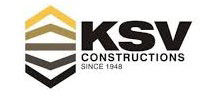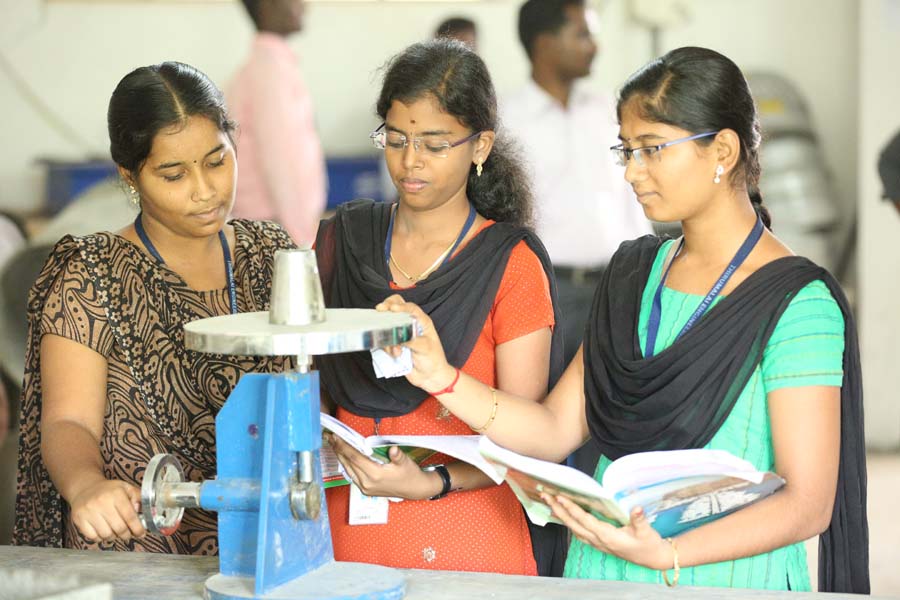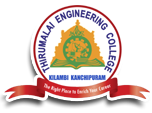M.E – Construction Engineering and Management
Introduction
Construction engineers design and execute processes for building and maintaining the infrastructure of our world. The tools of the trade for today’s successful construction engineer include the following: strong math, science, and computer skills; creativity; an aptitude for applying science and engineering methods to solve problems; a love of building structures such as bridges, airports, buildings, stadiums, dams, and highways; an interest in working indoors and outdoors; initiative and a strong work ethic; the ability to collaborate with diverse people; good communications skills; and a desire to learn in a constantly changing environment.
Students in the Construction Engineering and Management (CEM) program have the opportunity to develop additional expertise in mechanical engineering, environmental engineering, management, building information modeling, and many other options through minors in these fields. Each student completes three 12-week paid internships before graduating. Internships are normally completed during the summer, with opportunities across the country. Students have worked as locally as their hometown and as far away as Norway!
Our students take internship opportunities to work as paid employees in the construction industry and perform duties with increasing responsibilities in field operations, office operations, and project management. The CEM program also provides global opportunities, from engineering service trips to Ecuador—fostering international relationships and building structures to better a community—to internship and study abroad opportunities across the world.
Because of the unique and hands-on educational experiences of our CEM students, we have a 100% job placement rating for our graduates. What does this mean? Each and every one of our graduating seniors has a job, often receiving multiple job offers before graduation!
History of the Department
At Penn State, the credit for broadening the Civil Engineering Department’s longstanding academic focus on analysis and design to include the construction phase must go to Dr. Harmer A. Weeden and his longtime associate Dr. Thomas D. Larson. Jack H. Willenbrock joined the Department as an Instructor in June 1968 and grew the construction program so that today about a fourth to a third of the civil undergraduates obtain employment in the construction industry. The program has awarded about 250 postbaccalaureate degrees.
Civil Engineering has been an aspect of life since the beginnings of human existence. The earliest practices of Civil Engg may have commenced between 4000 and 2000 BC in Ancient Egypt and Mesopotamia (Ancient Iraq) when humans started to abandon a nomadic existence, thus causing a need for the construction of shelter.
Profile
Civil Engineering is a Professional Engineering discipline and it is the Mother branch of Engineering that deals with the design, construction and maintenance of the physical and naturally built environment, including works such as bridges, roads, canals, dams and buildings.It is traditionally broken into several sub-disciplines including Environmental Engineering, Geotechnical Engineering, Structural Engineering, Transportation Engineering, Water Resources Engineering, Materials Engineering, Coastal Engineering, Surveying, and Construction Engineering.
The principle educational objective of our department is to provide the students with fundamental and high tech knowledge and the skills needed to resolve the problems related to construction and maintenance of infrastructure in harmony with the society and environment.
Our Vision & Mission
Our Vision
M.E – Construction Engineering and ManagementOur Vision
Create advanced facilities for teaching and practical training of UG & PG students. Advance the facilities and intellectual capital in the arena of Research and Development. Develop technical manpower through interactive professional development programs spanning areas in communication, leadership, personal effectiveness, and corporate readiness. Enable the execution of real-life projects in collaboration with industry and academia. To empower the underprivileged through community outreach projects in and around the College.
Our Goal
M.E – Construction Engineering and ManagementOur Goal
- Adapt to evolving technology.
- Provide optimal solutions to real time problems.
- Demonstrate his/her abilities to support service activities with due consideration for Professional and Ethical Values
Our Vision
M.E – Construction Engineering and ManagementOur Vision
- To adopt valuable teaching methods and implement high quality education to maximize Engineering knowledge for students.
- To promote innovative and original thoughts in the minds of civil engineers.
- To provide facilities to the students and faculty members to enhance the understanding and implementation of recent trends in the Civil Engineering field.
- To produce Civil Engineering graduates with good ethical skills and managerial skills to become as successful professionals and entrepreneurs.
- To promote advanced technology, Industry Institute interaction, research and consultancy in Civil Engineering department with global linkages.
Department Library
Mile Stones
Laboratory
Achievements
Developed employable best students for the Civil engineering industry
Department Activities
- Conducted year wise symposiums.
- Arranged Guest lecturers through pioneers from the industry
- Monthly department association Meeting
- Industry visit twice in a semester
- National Level Workshop, Seminar and Conference organized to share the knowledge
- Student convention conducted every year.
- Conducting Guest Lecture by eminent personalities in various fields of Computer Engineering.
PO1: Engineering knowledge: Apply the knowledge of mathematics, science, engineering fundamentals, and an engineering specialization to the solution of complex engineering problems.
PO2: Problem analysis: Identify, formulate, review research literature, and analyze complex engineering problems reaching substantiated conclusions using first principles of mathematics, natural sciences, and engineering sciences.
PO3: Design/development of solutions: Design solutions for complex engineering problems and design system components or processes that meet the specified needs with appropriate consideration for the public health and safety, and the cultural, societal, and environmental considerations.
PO4: Conduct investigations of complex problems: Use research-based knowledge and research methods including design of experiments, analysis and interpretation of data, and synthesis of the information to provide valid conclusions.
PO5: Modern tool usage: Create, select, and apply appropriate techniques, resources, and modern engineering and IT tools including prediction and modeling to complex engineering activities with an understanding of the limitations.
PO6: The engineer and society: Apply reasoning informed by the contextual knowledge to assess societal, health, safety, legal and cultural issues and the consequent responsibilities relevant to the professional engineering practice.
PO7: Environment and sustainability: Understand the impact of the professional engineering solutions in societal and environmental contexts, and demonstrate the knowledge of, and need for sustainable development.
PO8: Ethics: Apply ethical principles and commit to professional ethics and responsibilities and norms of the engineering practice.
PO9: Individual and team work: Function effectively as an individual, and as a member or leader in diverse teams, and in multidisciplinary settings.
PO10: Communication: Communicate effectively on complex engineering activities with the engineering community and with society at large, such as, being able to comprehend and write effective reports and design documentation, make effective presentations, and give and receive clear instructions.
PO11: Project management and finance: Demonstrate knowledge and understanding of the engineering and management principles and apply these to one’s own work, as a member and leader in a team, to manage projects and in multidisciplinary environments.
PO12: Life-long learning: Recognize the need for, and have the preparation and ability to engage in independent and life-long learning in the broadest context of technological change.
PSO1: Graduates will able to apply fundamental knowledge, problem solving skills, engineering experimental abilities, and design capabilities necessary for entering civil engineering career.
PSO2: Graduates will be able to demonstrate knowledge of engineering techniques for effective project management and professional development to face emerging challenges.
PSO3: Graduates will be able to apply their technical and professional skills to be nationally competitive for employment/self-employment and for the benefit of society.
Our students visited many CONSTRUCTION INDUSTRY IN CHENNAI AND BANGALORE in Every year.
SERCC Tharamani Chennai visited and students guided to project activities.
Our students had participated in various project display and workshops in various colleges and won the prizes
Our Students Placed Companies
Department Activities
Department Events










